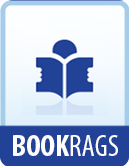But the nobler, the more varied, the more animating was the life surrounding me, and the more I found all without me, as also all within me, striving and tending towards harmony and unity, by so much the less could I longer be restrained from seeking out this unity, even should it be at the sacrifice of all that was dear to me, if need were for that. I was impelled to seek to develop this unity all bright and living within my own soul, and to contemplate it in definite, clear, and independent form, so that finally I might be able to set it forth in my actual life with sureness and certainty.
After nine years’ interval I visited the university a second time; first (spring of 1810) at Goettingen, and then a year and a half later (autumn of 1811) at Berlin.[98]
I now began to pursue the study of languages. The linguistic treasures which recent discoveries had brought us from Asia excited my deepest interest wherever I came into contact with them.
But in general the means of acquiring languages were too lifeless, too wanting in connection to be of any use to me; and the effort to work them out afresh in my own way, soon led me to a renewed study of Nature. Nature held me henceforth so fast that for years I was chained uninterruptedly to her study, though truly languages went on as a side-study during the time. Yet it was not as separate entities that I considered the phenomena I was working at; rather was it as parts of the great whole of natural life, and this also I regarded as reposing in one supreme unity together with all mankind; Nature and man, the two opposite mutually casting light upon each other and mirroring each other.
After the German war of the spring of 1813 had interrupted my studies at Berlin, and I had made acquaintance with a soldier’s life, its need, and its habits in Luetzow’s corps, I returned in 1814 to my studies and to a scientific public post in Berlin. The care, the arrangement, and in part the investigation and explanation of crystals were the duties of my office. Thus I reached at last the central point of my life and life-aim, where productiveness and law, life, nature, and mathematics united all of them in the fixed crystalline form, where a world of symbols offered itself to the inner eye of the mind; for I was appointed assistant to Weiss at the mineralogical museum of the Berlin University.[99]
For a long time it was my endeavour and my dearest wish to devote myself entirely to an academical career, which then appeared to me as my true vocation and the only solution of the riddle of my life; but the opportunities I had of observing the natural history students of that time, their very slight knowledge of their subject, their deficiency of perceptive power, their still greater want of the true scientific spirit, warned me back from this plan. On the other hand, the need of man for a life worthy of his manhood and of his species pressed upon me with all the more force,




